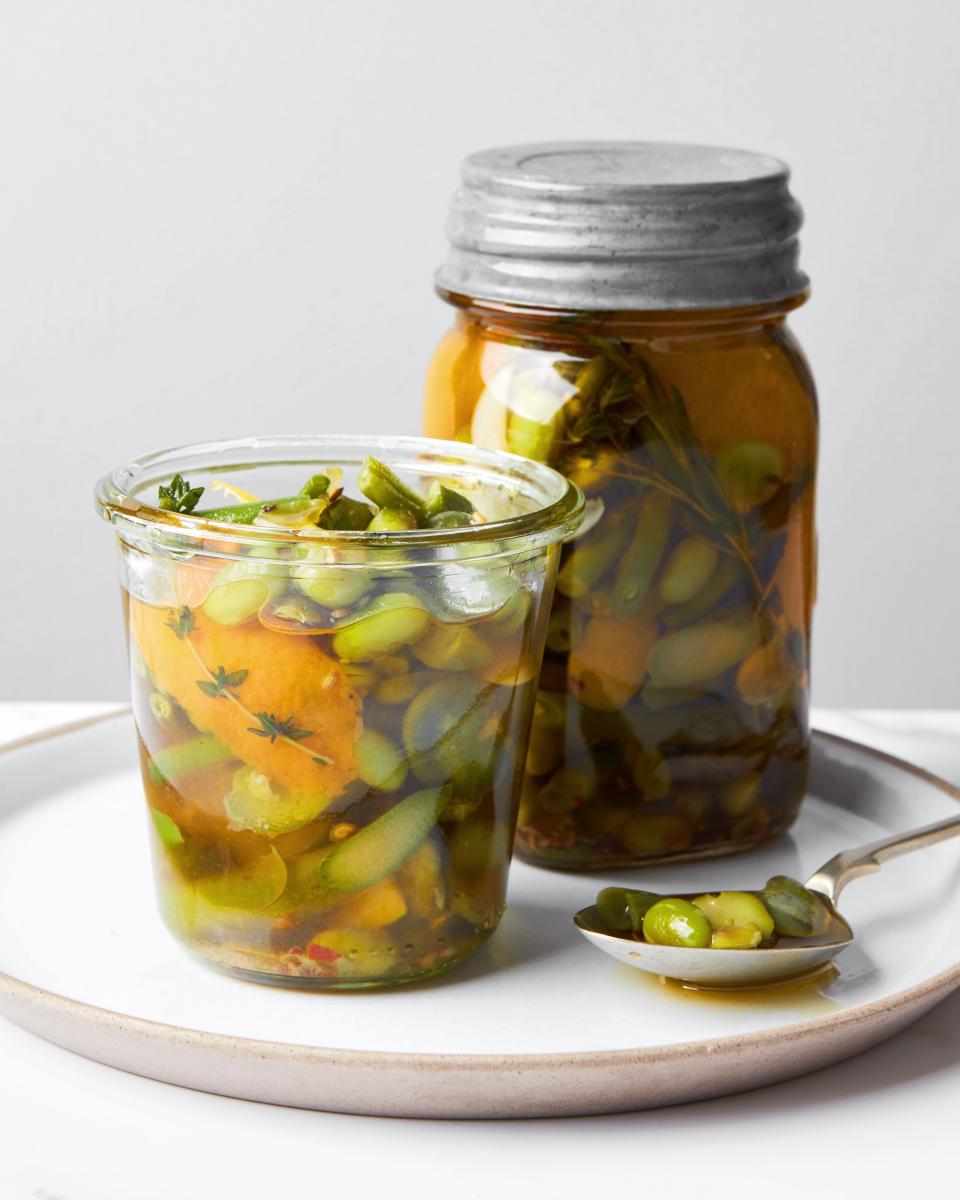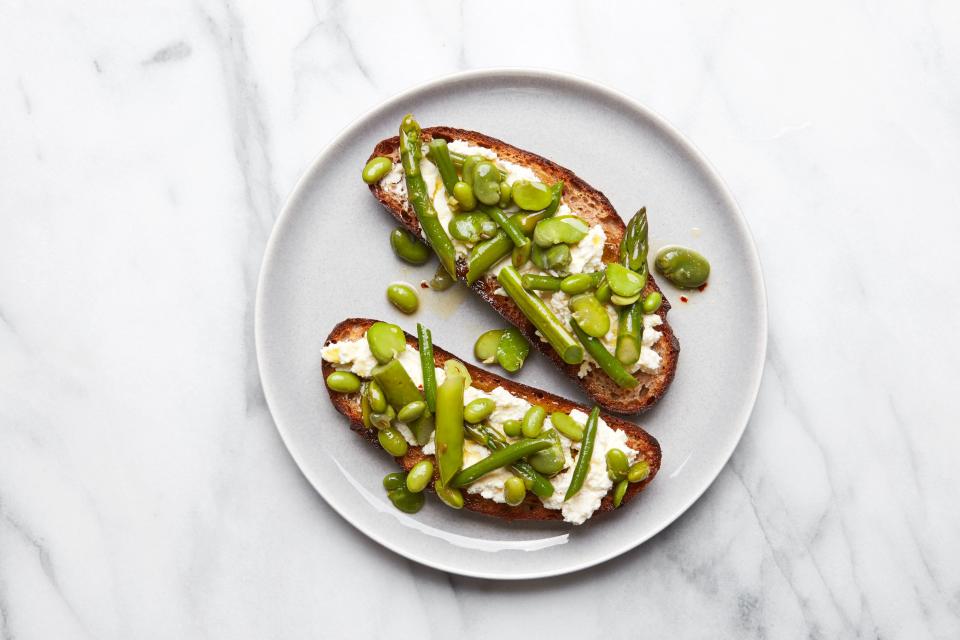For Peak Spring Snacking, Marinate Fava Beans Once and Enjoy Them for Days
There’s just something so hopeful about spring. There are finally green vegetables (Fava beans! Asparagus!) at the farmers market, and people just seem nicer than usual. But we can all only eat so many pesto pastas with peas.
Marinating spring produce in a flavorful, herb-packed oil can make it stretch a little more and last a little longer. My new recipe is ideal for an outdoor brunch or afternoon drinks with your newly vaccinated friends and family. And in case you’ve forgotten during a long stretch of Zoom-only socializing: Having a snack on hand—or a whole meal—that you’ve prepped in advance makes entertaining much more fun for everyone, including yourself.

Marinated Fava Beans - INSET & IG V3
Photo & Food Styling by Joseph De LeoFresh fava beans are one of spring’s great delights, but let’s be honest, they require a bit of labor: peel, blanch, shock, and peel again. It’s too much to fuss with at the last minute but a great way to show your guests that you’re excited to finally see them again.
You can go the super-easy route and use frozen favas here. But using fresh feels like a way to properly dive into spring. You’ll pop the vegetables into boiling salted water and just barely cook the outer layer, then shock them in an ice bath to ensure that each bite remains crunchy and bright.

Marinated Fava Beans - INSET - IG V2
Photo by Joseph De Leo, Food Styling by Erika JoyceThe marinade here is oil-and-lemon-juice-based, flavored with orange and lemon peels for a fresh citrusy punch, plus garlic, rosemary, and fennel, which boost the flavor of the vegetables without taking over. Feel free to customize the mixture to your taste, though: You can throw in that knob of ginger from the back of your fridge, or add whole spices like cumin, coriander, and black pepper too.
After a few hours—or days—of marinating, the vegetables are slightly pickled and brightly tangy. They are delicious as part of a cheese board, served on their own with crackers, or piled onto a piece of toast that’s smeared with creamy ricotta. You can also use the flavored oil as a dressing on your salads. For a heartier meal, spoon onto a warm bowl of polenta. One warning, though: You may find yourself wishing that you’d made an extra jar.
Citrus-Oil-Marinated Spring Vegetables
Originally Appeared on Epicurious


